
The Reverend Albert
Cleage Jr. and the Black
Prophetic Tradition
Rhetoric, Race, and Religion
Series Editor: Andre E. Johnson, University of Memphis
This series will provide space for emerging, junior, or senior scholars engaged in research that studies rhetoric from a race or religion perspective. This will include studies contributing to our understanding of how rhetoric helps shape race and/or religion and how race and/or religion shapes rhetoric. In this series, scholars seek to examine phenomenon from either a historical or contemporary perspective. Moreover, we are interested in how race and religion discourse function rhetorically.
Recent Titles in This Series
Reverend Albert Cleage Jr. and the Black Prophetic Tradition: A Reintroduction of The Black Messiah
By Earle J. Fisher
Rhetorics of Race and Religion on the Christian Right: Barack Obama and the War on Terror
By Samuel P. Perry
Rhetoric, Race, Religion, and the Charleston Shootings: Was Blind but Now I See
By Sean Patrick ORourke and Melody Lehn
Rhetoric and the Responsibility to and for Language: Speaking of Evil
By Matthew Boedy
The Struggle over Black Lives Matter and All Lives Matter
By Amanda Nell Edgar and Andre E. Johnson
Desegregation and the Rhetorical Fight for African American Citizenship Rights
By Sally F. Paulson
Contemporary Christian Culture: Messages, Missions, and Dilemmas
Edited by Omotayo Banjo Adesagba and Kesha Morant Williams
The Motif of Hope in African American Preaching during Slavery and the Post-Civil War Era: Theres a Bright Side Somewhere
By Wayne E. Croft
The Womanist Preacher: Proclaiming Womanist Rhetoric from the Pulpit
By Kimberly P. Johnson
Women Bishops and Rhetorics of Shalom: A Whole Peace
By Leland G. Spencer
What Movies Teach about Race: Exceptionalism, Erasure, and Entitlement
By Roslyn M. Satchel
Womanist Ethical Rhetoric: A Call for Liberation and Social Justice in Turbulent Times
Edited by Annette Madlock Gatison and Cerise L. Glenn
To my mother Claudia, my wife Denise, my sister Teiryne, my son
Jalen, all of my family, friends, colleagues in ministry and the
academy, the Abyssinian Baptist Church (the Blackest Church in
Memphis and Shelby County) and all who have helped shape my love
of God, myself, Black people, and the Black Prophetic Tradition.
The Reverend Albert
Cleage Jr. and the Black
Prophetic Tradition
A Reintroduction of
The Black Messiah
Earle J. Fisher
LEXINGTON BOOKS
Lanham Boulder New York London
Published by Lexington Books
An imprint of The Rowman & Littlefield Publishing Group, Inc.
4501 Forbes Boulevard, Suite 200, Lanham, Maryland 20706
www.rowman.com
6 Tinworth Street, London SE11 5AL, United Kingdom
Copyright 2022 The Rowman & Littlefield Publishing Group, Inc.
All rights reserved. No part of this book may be reproduced in any form or by any electronic or mechanical means, including information storage and retrieval systems, without written permission from the publisher, except by a reviewer who may quote passages in a review.
British Library Cataloguing in Publication Information Available
Library of Congress Cataloging-in-Publication Data
Names: Fisher, Earle J., 1978- author.
Title: The Reverend Albert Cleage Jr. and the Black prophetic tradition : a reintroduction of The Black Messiah / Earle J. Fisher.
Description: Lanham : Lexington Books, [2022] | Series: Rhetoric, race, and religion | Includes bibliographical references and index. |
Summary: Reverend Albert Cleage Jr. and the Black Prophetic Tradition probes the sermonic material in Albert Cleage Jr.s groundbreaking book, The Black Messiah (1969) and explores how and what the book has contributed to the broader scope of Black Liberation Theology and Black religious rhetoric in the past and present Provided by publisher.
Identifiers: LCCN 2021038986 (print) | LCCN 2021038987 (ebook) | ISBN 9781793631053 (cloth) | ISBN 9781793631060 (ebook)
Subjects: LCSH: Cleage, Albert B., Jr., 1911-2000. Black messiah. | Cleage, Albert B., Jr., 1911-2000. | African AmericansRace identity. | Jesus ChristAfrican American interpretations. | Black powerUnited States.
Classification: LCC E185.625 .C6224 2022 (print) | LCC E185.625 (ebook) | DDC 230.089/96073dc23
LC record available at https://lccn.loc.gov/2021038986
 The paper used in this publication meets the minimum requirements of American National Standard for Information SciencesPermanence of Paper for Printed Library Materials, ANSI/NISO Z39.48-1992.
The paper used in this publication meets the minimum requirements of American National Standard for Information SciencesPermanence of Paper for Printed Library Materials, ANSI/NISO Z39.48-1992.
Contents
I accidentally stumbled upon Albert Cleage Jr. in 2012. I was preparing to develop a course called Gangster Theology while teaching in the Religious Studies Department at Rhodes College. I reached out to Dr. Randall C. Bailey and explained to him my concept for the class and asked for recommended resources. One of the books he suggested was the epic text, Is God A White Racist, by the late William Jones. Being a student of Black Liberation Theology and learning about James Cone and Dwight Hopkins while I was a M.Div. student at Memphis Theological Seminary, I thought I had a pretty good grasp on the development and determinism of Black religion, prophetic rhetoric, and the major personalities associated with them. I was wrong. I had been underexposed.
Joness book unsettled me (in a good way). As I stared at his chapter entitled, Black Christian Nationalism and Albert Cleage Jr., what startled me the most was not the revolutionary theology and liberationist rhetoric by which Cleage was being presented and challenged) by Jones. It was that I had recalled making numerous statements that mirrored Cleages convictions during my preaching and teaching sessions at Abyssinian Baptist Church in Memphis, TN. I began serving at Abyssinian in the spring of 2011. Finding Cleages work in 2012 was a breath of fresh air and a wind of sacred fire. It was refreshing to know that I was not some isolated and marginalized voice within an echo chamber of hegemonic homilies and deradicalized religion.
I tabled my engagement with Cleage until I entered the Ph.D. program in Rhetoric and Communication at the University of Memphis in the fall of 2014. Having built an excellent relationship with my pastor and mentorsDrs. Frank Thomas, Valerie Bridgeman, Barbara Holmes, and Andre E. JohnsonI was able to build upon works that converged preaching, prophesy, and politics. Dr. Johnson would coin this convergence the intersection of Rhetoric, Race, and Religion. The academic advisement that Holmes gave me (even paying my Ph.D. program application fee out of her own pocket) coupled with her sagacious mysticism convinced me to study Black religion with Unspeakable Joy. The work Bridgeman and Thomas have done in homiletics helped shape my research interests in African American Religious and Prophetic Rhetoric. Johnsons groundbreaking work on Bishop Henry McNeal Turner would be a paradigmatic influence on my engagement with Cleage.
What affirmed me the most in my pursuit of learning more about Cleages theology and rhetoric is the relationship Ive built with his successorsBishops Kimathi Nelson, Mbiyu Chui, and the foremost Cleagian scholar, Dr. Jawanza Eric Clark. Their direct encounters with Cleage and willingness to openly dialogue with me about those experiences, their thoughtful responses to my musings, their appreciation of my curiosity and concentration on Cleages rhetoric, and their compassionate embrace of my pastoral and academic vocations have made me a better preacher, pastor, and scholar.
Next page
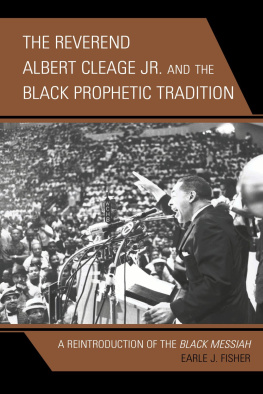

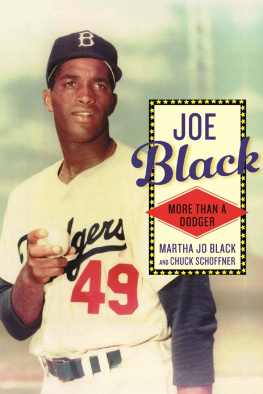
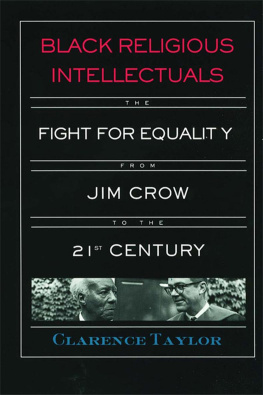
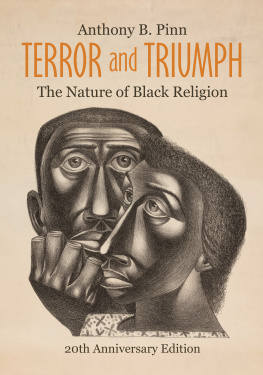
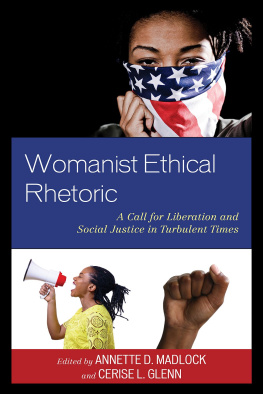
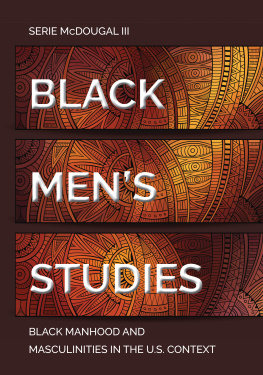
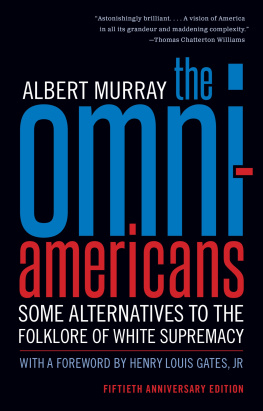

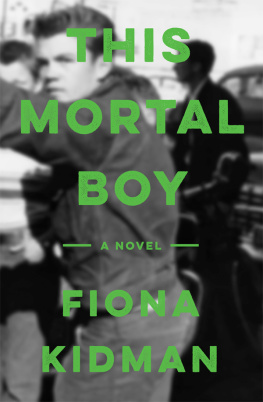

 The paper used in this publication meets the minimum requirements of American National Standard for Information SciencesPermanence of Paper for Printed Library Materials, ANSI/NISO Z39.48-1992.
The paper used in this publication meets the minimum requirements of American National Standard for Information SciencesPermanence of Paper for Printed Library Materials, ANSI/NISO Z39.48-1992.